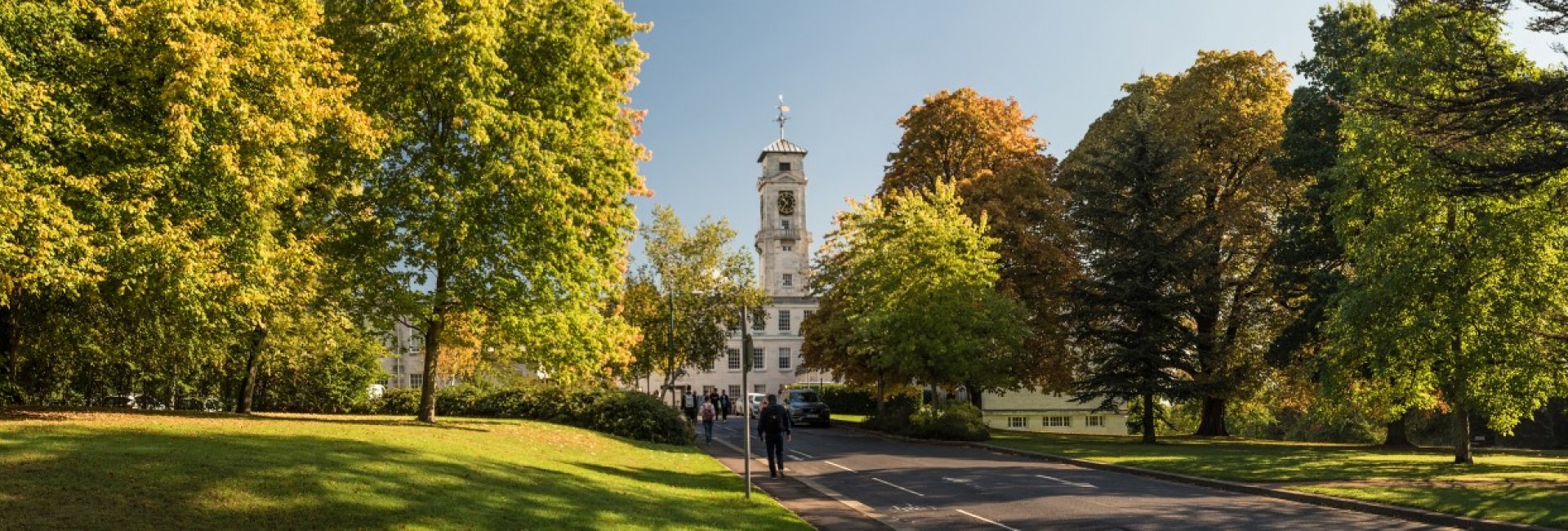University of Nottingham
University Park
Nottingham
NG7 2RD
Visit our website Visit our course page
Course contact details
Undergraduate admissions
Phone:+44 (0) 115 951 5559

Film and television are central to global culture. They entertain, inform, promote ideologies and help us communicate to and connect with other cultures.
If you want to look at how they do this - and why - Film and Television Studies is for you.
You'll explore:
their history and development
how audiences interact and respond
the practices and reach of screen industries
Your internationally recognised lecturers will help you develop the skills to think critically about, investigate and analyse film and television.
Our optional video production module will give you a practical introduction to the skills needed to work behind (and in front of) the camera.
Our Creative Student Network will also help you get to the heart of current media industries. It organises:
talks by leading practitioners
practical skills and CV writing workshops
opportunities to intern at global media organisations (such as Disney and the Art Directors Guild in Los Angeles, and Red Bee Creative in London)
Combine with another subject
You can also combine Film and Television Studies with American Studies in our joint honours programme, or study alongside multiple disciplines in our BA Liberal Arts.
Foundation Year
This course is also available with a Foundation Year - aimed at developing potential and diversifying our recruitment.
In year one, you will engage in multidisciplinary activity in addition to core studies in film and television history, production cultures, the analysis of film texts and key critical perspectives, and the contexts of film and television consumption.
Year two develops your understanding of key critical and theoretical approaches in the study of the production, circulation and cultural reception of film and television.
Modules explore the ways film and television converge in the contemporary media landscape, the phenomena of transnational media flows and the social significance of the culture industries and issues of representation.
You also have the opportunity to investigate practical media applications.
Year three you will specialise in specific aspects of film and television studies by choosing from a range of advanced modules in film and television genres, global cinema and blockbusters, audience study and more!
For students interested in practical filmmaking experience there is also an optional video production module.
You will also produce an independent research dissertation under staff supervision.
You may also spend time overseas through the University of Nottingham Study Abroad programme.
Placement and volunteering opportunities are available in the School of Cultures, Languages and Area Studies, as well as via the Nottingham Advantage Award.
Language modules can be taken for credit with our Language Centre.
This course is also available with a Foundation Year.

Learn what it's like to study at University of Nottingham. From key stats to campus highlights, open days, and more - find everything you need to know here.
The following entry points are available for this course:
European Baccalaureate - 75% overall.
We consider applicants solely on the basis of their merits, abilities and potential – we use exam grades to prioritise applicants but look at a range of factors and aim to give everyone an equal opportunity to show their achievements.
We understand that background and personal circumstances can have an impact on academic performance at school or college. Applicants who are eligible under our contextual admissions policies may be considered for a reduced contextual offer.
This section shows the range of grades students were previously accepted with - learn more. It is designed to support your research but does not guarantee whether you will or won't get a place. Admissions teams consider various factors, including interviews, subject requirements, and entrance tests. Check all course entry requirements for eligibility.
Students aged 17/18 who applied to this course were offered a place.
See how students with your grades have been accepted onto this course in the past.
| Location | Fee | Year |
|---|---|---|
| Republic of Ireland | £9250* | Year 1 |
| EU | £21500* | Year 1 |
| England | £9250* | Year 1 |
| Northern Ireland | £9250* | Year 1 |
| Scotland | £9250* | Year 1 |
| Wales | £9250* | Year 1 |
| Channel Islands | £9250* | Year 1 |
| International | £21500* | Year 1 |
* This is a provisional fee and subject to change.
Tuition fee status depends on a number of criteria and varies according to where in the UK you will study. For further guidance on the criteria for home or overseas tuition fees, please refer to the UKCISA website.
No additional fees or cost information has been supplied for this course, please contact the provider directly.
University Park
Nottingham
NG7 2RD
Visit our website Visit our course page
Phone:+44 (0) 115 951 5559